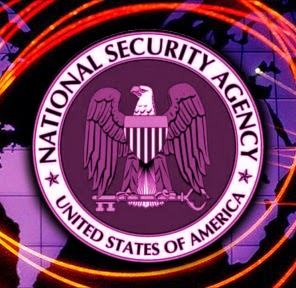 A Patriot's Act is a legal novel by lawyer Kenneth Eades, exploring the impact of Bush's terror laws, based on case histories. In a legal investigation and then a trial, we see how US administrations redefined torture in the light of 'terrorism' and we learn what that could mean to an individual. This clear but sophisticated story dramatises what has been sacrificed for 'safety' and how much less safe it really makes us. This article by the author of the book, gives a history of how we got from there to here. Although the author writes about the United States, Australia has aped that country with its own terror laws.
A Patriot's Act is a legal novel by lawyer Kenneth Eades, exploring the impact of Bush's terror laws, based on case histories. In a legal investigation and then a trial, we see how US administrations redefined torture in the light of 'terrorism' and we learn what that could mean to an individual. This clear but sophisticated story dramatises what has been sacrificed for 'safety' and how much less safe it really makes us. This article by the author of the book, gives a history of how we got from there to here. Although the author writes about the United States, Australia has aped that country with its own terror laws.
After the release of the CIA Torture Report, we are reminded once again of the abuses that our own government committed in the so-called “War on Terror.”
Amnesty international has called the Guantanamo Bay Detention Camp the “gulag of our time.” Since President Obama’s order to close the camp within one year on January 23, 2009, it has remained open because the president decided to amass political capital to use for his domestic agenda, which included “Obamacare.” On January 7, 2011, Obama signed the 2011 Defense Authorization Bill, which placed restrictions on transferring prisoners to the United States. As of May 2014, there were 149 detainees being held, at a cost to the government of roughly $1.9 million per detainee. Some of them have been held, without trial and without charge, since 2003. 46 of them have been declared by the government to be too dangerous to release, but they cannot be tried for any crime because there is insufficient evidence to try them. Approximately half of the detainees held today have been cleared for release, but may never regain their freedom. Many of their native countries have refused to repatriate them, and, because of the new legislation, they cannot be transferred to prisons in the United States.
Courts have upheld detentions at Guantanamo under the Authorization for Use of Military Force (AUMF) passed by Congress three days after the September 11th attacks. The reasoning behind this is to keep prisoners from returning to the battlefield until the conflict is over. But the current conflicts in Iraq and Afghanistan show no sign of being over, especially with the rise in power of ISIS, which is a direct result of U.S. intervention and destruction of infrastructure.
When the United States military arrested the detainees and threw them into Guantanamo Bay Detention Camp indefinitely, they denied them the right to counsel guaranteed by the Sixth Amendment. They also denied them the right to a speedy trial, to confront the witnesses against them, to a trial by jury, and the right to be informed of what they were was charged with. They denied them the his right to trial by jury, guaranteed by the Fifth Amendment, his right to due process of the law by holding them indefinitely with no charge, and his coerced confession violated his privilege against self-incrimination.
Finally, and most importantly, by beating them, torturing them and treating them as less than human, depriving them of sensory input, overloading their senses, force feeding and torturing them, the Government denied them the Eighth Amendment guarantee to be free from cruel and unusual punishment. Not only were detainees denied the constitutionally guaranteed rights that any person imprisoned in the United States would be entitled to, no matter the heinous crime they may be accused of, they were also denied the rights that any enemy soldier captured fighting against the United States would get pursuant to the Geneva Conventions of 1949. Article 3 of the Geneva Conventions prohibits detention practices that are “cruel, degrading, or humiliating.”
The Government’s position that the Constitution had no effect at Guantanamo Bay has caused enormous separation-of-powers concerns in that the president was not allowed to simply “turn the Constitution off” simply because Guantanamo, which had been under U.S. possession and control for over 100 years, was located in a foreign country.
After September 11, 2001, torture was official U.S. policy under George Bush – authorized at the highest levels of government. Evidence of its continued and systematic practice continues to surface to this day.
On September 17, 2001, George Bush signed a secret finding empowering the CIA to capture, kill, or interrogate al-Qaeda Leaders.” It also authorized establishing a secret global network of facilities to detain and interrogate them without guidelines on proper treatment. Around the same time, Bush approved a secret “high-value target list” of about two dozen names. He also gave CIA free reign to capture, kill and interrogate terrorists not on the list.
On November 13, 2001, the White House issued a Military Order regarding the “Detention, Treatment, and Trial of Certain Non-Citizens in the War on Terror.” It determined that “an extraordinary emergency exists for national defense purposes that this emergency constitutes an urgent and compelling government interest and that issuance of this order is necessary to meet the emergency.” It defined targeted individuals as al Qaeda and others for aiding or abetting acts of international terrorism or harboring them. These individuals were to be denied access to U.S. or other courts and instead tried by military commission with the power to convict by the concurrence of two-thirds of its members.
On December 28, 2001, Deputy Assistant Attorney Generals Patrick Philbin and John Yoo, sent a Memorandum to General Counsel, Department of Defense, and William Haynes II entitled: “Possible Habeas Jurisdiction over Aliens Held in Guantanamo Bay, Cuba.” It said that federal courts have no jurisdiction over and cannot review Guantanamo detainee mistreatment or mistaken arrest cases. It further stated that international laws don’t apply in the “War on Terror.” This laid the groundwork for abuses in all U.S. military prisons.
On January 18, 2002, Bush issued a “finding” stating that prisoners suspected of being al Qaeda or Taliban members are “enemy combatants” and unprotected by the Third Geneva Convention. They were to be denied all rights and treated “to the extent….consistent with military necessity.” Torture was thus authorized. The 2006 Military Commissions Act (also known as the “torture authorization act”) later created the Geneva-superseded category of “unlawful enemy combatant” to deny them any chance for judicial fairness.
On January 19, 2002 Donald Rumsfeld sent a memo to the Joint Chiefs of Staff entitled: “Status of Taliban and al Qaeda.” It stated that these detainees “are not entitled to prisoner of war status for purposes of the Geneva Conventions of 1949.” It gave commanders enormous latitude to treat prisoners “to the extent appropriate with military necessity” as they saw fit.
On January 25, 2002, Alberto Gonzales issued a memo to George Bush, which called the Geneva Conventions “quaint” and “obsolete” and said the administration could ignore them in interrogating prisoners. He also outlined plans to try prisoners in military commissions and to deny them all protections under international law, including due process, habeas corpus rights, and the right to appeal. In December 2002, Donald Rumsfeld concurred by approving a menu of interrogation practices allowing anything short of what would cause organ failure.
On February 7, 2002, the White House issued an Order “outlining treatment of al-Qaeda and Taliban detainees.” It stated that “none of the provisions of the Geneva Conventions apply to our conflict with al-Qaida or the Taliban in Afghanistan “or elsewhere throughout the world.”
A plethora of similar memos followed covering much the same ground, allowing all measures that had been banned under international and U.S. law, including the 1994 Torture Statute and the Torture Act of 2000, and the 1996 War Crimes Act, which imposes a penalty of up to life in prison or death for persons convicted of committing war crimes within or outside the US. Torture is a high war crime, the highest after genocide.
Two other memos were written by John Yoo, Alberto Gonzales, Jay Bybee (now a federal court of appeals justice in the Ninth Circuit) and David Addington, Dick Cheney’s former legal counsel. One was for the CIA on August 2, 2002. It argued that interrogators should be free to use harsh measures amounting to torture. It said federal laws prohibiting these practices don’t apply when dealing with al-Qaeda because of the presidential authorization to use force during wartime. It also denied that U.S. or international law applies in overseas interrogations. It essentially “legalized” anything in the “War on Terror” and authorized lawlessness and supreme presidential power.
On March 14, 2003, the group issued another memo entitled, “Military Interrogation of Alien Unlawful Combatants Held Outside the United States.” This became known as “the Torture Memo” because it swept away all legal restraints and authorized military interrogators to use extreme measures amounting to torture. It also gave the President as Commander-in-Chief “the fullest range of power….to protect the nation.” It stated he “enjoys complete discretion in the exercise of his authority in conducting operations against hostile forces.” In 2004, the head of the Office of Legal Counsel, Jack Goldsmith, rescinded the Memorandum, saying it showed an “unusual lack of care and sobriety in legal analysis and seemed more an exercise of sheer power than reasoned analysis.”
Nevertheless, other administration documents authorized continued use of practices generally reflecting Yoo’s and Bybee’s views. They authorized the infliction of “intense pain or suffering” short of what would cause “serious physical injury so severe that death, organ failure, (loss of significant body functions), or permanent damage” may result. The President’s July 20, 2006 Executive Order was one such document, entitled “Interpretation of the Geneva Conventions Common Article 3 as Applied to a Program of Detention and Interrogation Operated by the Central Intelligence Agency.” It pertained to “a member or part of or supporting al Qaeda, the Taliban, or associated organizations who may have information that could assist in detecting, mitigating, or preventing terrorist attacks….within the United States or against its Armed Forces or other personnel, citizens, or facilities, or against allies or other countries cooperating in the war on terror….”
It authorized the Director of CIA to determine appropriate interrogation practices. Based on what is now known, they included sleep deprivation, waterboarding or simulated drowning, stress positions (including painfully extreme ones), prolonged isolation, sensory deprivation and/or overload, beatings, electric shocks, induced hypothermia, and other measures that can cause irreversible physical and psychological harm, including psychoses.
In a secret 2007 report, the International Committee of the Red Cross concluded that CIA interrogators had tortured high-level al Qaeda prisoners. Abu Zubaydah was one, a reputed close associate of Osama bin Laden and a Guantanamo detainee. He was confined in a box “so small he had to double up his limbs in the fetal position” and stay that way. He and others were also “slammed against the walls,” waterboarded to simulate drowning, and given other harsh and abusive treatment.
The report also said Khalid Shaikh Mohammed, the alleged chief 9/11 planner, was kept naked for over a month – “alternately in suffocating heat and in a painfully cold room.” Most excruciating was a practice of shackling prisoners to the ceiling and forcing them to stand for as long as eight hours. Other techniques included prolonged sleep deprivation, “bright lights and eardrum-shattering sounds 24 hours a day.”
ICRC’s Bernard Barrett declined to comment but confirmed that Red Cross personnel regularly visit Guantanamo detainees, including high-level ones. They also “have an ongoing confidential dialogue with members of the US intelligence community, and we would share any observations or recommendations with them.”
The executive continued to deny all basic rights to detainees, including the constitutional guarantee of habeas corpus, and the Congress went along with it, in passing a series of Acts of Congress attempting to limit this constitutional guarantee. However, in 2004, the United States Supreme Court held, in Rasul v. Bush, that the habeas corpus jurisdiction of United States federal courts extended to Guantanamo Bay. In 2004, the Court also held, in Hamdi v. Rumsfeld, that due process mandated that an alleged enemy combatant held on U.S. soil be entitled to a due process challenge of his enemy combatant status.
In June 2006 the Supreme Court, in Hamdan v. Rumsfeld threw out section 1005a of the Detainee Treatment Act denying the right of an alien detainee to habeas corpus, and ruled that the structure and procedures of the military commissions established to try detainees violated both the Uniform Code of Military Justice and Common Article 3 of the Geneva Conventions had been violated. Congress passed and Bush signed into law the Military Commissions Act in October 2006, overriding the Supreme Court’s decision.
In 2008, the Supreme Court threw out the Act’s prohibition of the federal courts’ jurisdiction to hear detainees’ habeas corpus petitions as an unconstitutional suspension of habeas corpus in Boumedine v. Bush.
District Court Judge Aiken threw out two sections of the Patriot Act that modified the Foreign Intelligence Surveillance Act in Mayfield v. United States, but her decision was rendered moot on appeal when the Ninth Circuit Court of Appeal decided that Mayfield could not pursue his declaratory relief claim after he had settled with the government.
The “War on Terror” is still on, and is still being used as an excuse to broaden or extend the broad brush of governmental power. The USA Patriot Act was designed to be temporary, but has been reauthorized in 2005 and 2006. On February 27, 2010, President Obama signed into law legislation reauthorizing three controversial sections of the Act relating to roving wiretaps, lone wolf surveillance and seizure of property and records. On May 26, 2011, he signed into law the Patriot Sunsets Extension Act to extend key provisions of the Act. On June 1, 2015, the Patriot Act expired, but the next day, Obama signed into law the USA Freedom Act, which restored, in modified form, the most controversial provisions of The Patriot Act.
James Madison said, “The means of defense against foreign danger have been always the instruments of tyranny at home. Among the Romans it was a standing maxim to excite a war, whenever a revolt was apprehended. Throughout all Europe, the armies kept up under the pretext of defending, have enslaved the people.”
When he said this, he knew that he and Thomas Jefferson, Benjamin Franklin, and all the other statesmen who formed this country made the government to answer to the people, not the other way around. When they set up three branches of government with checks and balances, they did this so that no one branch would get any more powerful than the other. What we are seeing now is an abuse of power by an over-zealous president, and that abuse of power must be stopped. It is making the United States of America, once a beacon for liberty and freedom, and an example for every other democracy to follow, into an aggressive country that does not respect its own laws and does not play by its own principles. This is unacceptable, and we, as citizens of this country, need to send a clear message to your government with this verdict that the United States is a good and humane nation, who does not torture prisoners of war. We are a nation of laws, a nation who respects our fellow humans and the rights of our own citizens, as well as the rights of citizens of other countries.
Kenneth Eade is an attorney and the best-selling author of A Patriot’s Act, the fictional story of a naturalized U.S. citizen, captured in Iraq and held indefinitely at Guantanamo.
 Unfortunately the 'Online Safety Amendment (Protecting Australian Children from Online Harm) Bill 2023 passed the Australian Senate last night, with an amendment to be inserted after section 63D. I attach both the bill and the Senate amendment to the bill.
Unfortunately the 'Online Safety Amendment (Protecting Australian Children from Online Harm) Bill 2023 passed the Australian Senate last night, with an amendment to be inserted after section 63D. I attach both the bill and the Senate amendment to the bill. 
 Under the "
Under the " The title of the bill, before the Senate today, is "
The title of the bill, before the Senate today, is " In the following tweet by Robert F. Kennedy Junior, he explains how, whenever your mobile phone is within earshot of you, technical companies are actually eavesdropping on your private conversations with friends and acquaintances.
In the following tweet by Robert F. Kennedy Junior, he explains how, whenever your mobile phone is within earshot of you, technical companies are actually eavesdropping on your private conversations with friends and acquaintances. A Patriot's Act is a legal novel by lawyer Kenneth Eades, exploring the impact of Bush's terror laws, based on case histories. In a legal investigation and then a trial, we see how US administrations redefined torture in the light of 'terrorism' and we learn what that could mean to an individual. This clear but sophisticated story dramatises what has been sacrificed for 'safety' and how much less safe it really makes us. This article by the author of the book, gives a history of how we got from there to here. Although the author writes about the United States, Australia has aped that country with its own terror laws.
A Patriot's Act is a legal novel by lawyer Kenneth Eades, exploring the impact of Bush's terror laws, based on case histories. In a legal investigation and then a trial, we see how US administrations redefined torture in the light of 'terrorism' and we learn what that could mean to an individual. This clear but sophisticated story dramatises what has been sacrificed for 'safety' and how much less safe it really makes us. This article by the author of the book, gives a history of how we got from there to here. Although the author writes about the United States, Australia has aped that country with its own terror laws. 




Recent comments